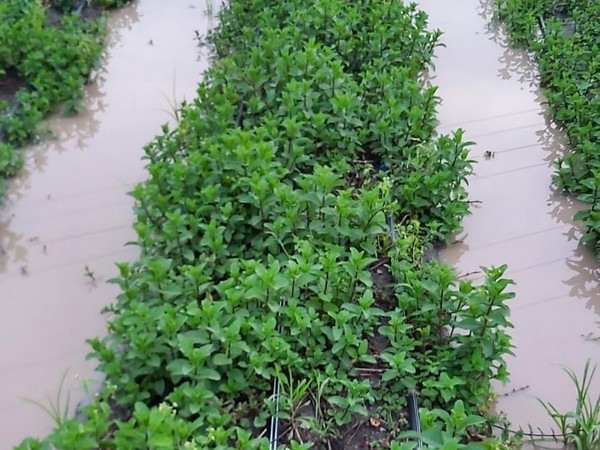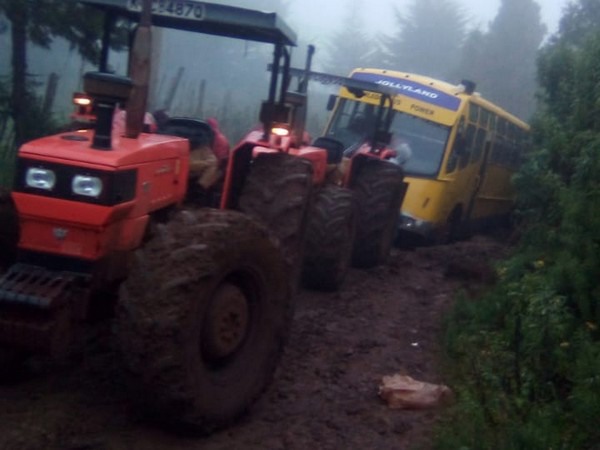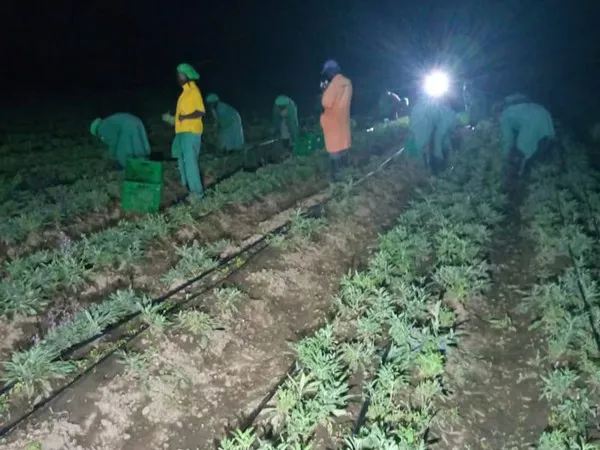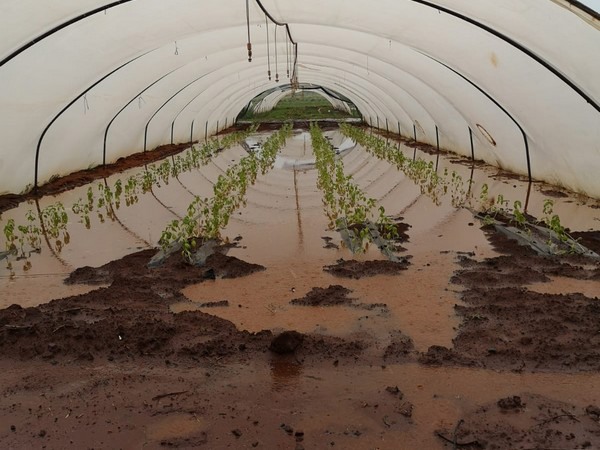Weather issues in Africa causes challenges for the herb market right during their busiest time of the year. Saul Isaacs is from Agriver, an Israeli company that works with growers in both Israel and Africa. Saul explains why he has been working with growers in Kenya and Ethiopia alongside the growers in Israel: “In the past few years, growers in Africa have been switching from growing flowers to growing herbs. The flower market was mostly saturated, but there was still lots of room in the herb market and so it has been seeing a lot of growth in Africa.”

Heavy rain in Kenya is making it difficult to harvest the herbs.
He continues: “In Israel, the opposite is happening and many growers are actually switching to other products. The labor is much more expensive in Israel and herbs are a very labor intensive crop, so it is much less profitable for growers in Israel. That is why we work with growers in both Africa and Israel. It is also good to have growers in different countries because when the crop having issues in one origin, we can source it from our other origins – for example, our customers might receive mint from Israel because the Kenyan mint isn’t top quality, but the next week it could be the other way around. So working with the different origins enables us to give a consistent supply with the best possible quality.”
Excessive rain in Kenya
Kenya and Ethiopia have been seeing a lot of rain – this has even causing flooding in Kenya – and this has made it very difficult for growers to be able to harvest their product. Saul shares: “We have never seen rain like this before in these areas. We grow our herbs both indoors, with coverings such as net-houses, as well as on the open field. It all depends on the variety, because some herbs just grow better outdoors while others perform better when they’re covered. But both the outdoor and the indoor varieties are very difficult to harvest because of the weather.”

Buses with workers need to be pulled by tractors to arrive at the location.
“The growers can’t harvest the herbs because the fields are flooded and the growers can’t get inside of the net-houses because it is too muddy or flooded. Then the other issue is logistical: getting the workers to and from the farm, and the product to the packhouses. They workers have to be transported on tractors because the buses can’t get through in the weather. Sometimes the harvesting has to be done at night time because it is the only time the rain lets up, but that is problematic for the quality of the product. Some varieties need to be harvested at very specific times of day to have the best quality and we are not able to abide by that now,” he explains.

When rain stops at night, the workers start directly.
Logistical issues for Spain
The weather isn’t the only challenge for the herb business. Herbs grown in Spain are also meeting difficulty. Saul says: “Spain is having a lot of logistical trouble due to the strikes in France. The Spanish product is transported by trucks and they have to pass through France to get to the Netherlands and the UK. The strikes are causing a lot of delays and sometimes the product doesn’t get through at all. I have also been hearing from customers that the quality hasn’t been great on the product coming from Spain and Morocco, which is also due to rain issues.”
Efforts to keep pricing stable
All these issues in the herb market are making it difficult for suppliers such as Saul to deliver the product at steady prices. He says: “The growers in Israel are demanding a higher price now. Because they are faced with such high demand due to the issues in Africa they are raising their prices. And if we want to get the product from them, we have to pay these higher prices. We try to ensure that we keep our prices stable for our buyers, but sometimes that’s just not possible. Fortunately, our customers are understanding about this.”

Net-houses in Kenya are flooded and muddy.
High Christmas demand can’t be met
Even though there have been many supply issues, the volumes that Agriver is able to deliver aren’t actually lower than usual. The issue is that during the Christmas season the overall demand spikes. Saul explains: “We can supply up to 70 to 80% more product during the Christmas season. This is the time of year when people are spending more time in the kitchen and they want to cook special meals and go the extra mile by adding fresh herbs. So we are able to supply higher volumes, but because of the general shortages and weather issues on top of the usual spike in demand because of the time of year, we are not able to meet the excessive demand.”
The Christmas season will wrap up next week. “The week before Christmas is the culmination of the season. That is when everybody is doing their shopping for their Christmas dinners. The actual week of Christmas is usually quiet because everybody is enjoying the holidays. The 18th and 19th of December are the big days, so we will see what happens then. I would also like to take the opportunity to wish everyone a peaceful and merry Christmas” Saul concludes.
For more information: 
Saul Isaacs
Agriver
Email: [email protected]
www.agriver-freshproduce.com
